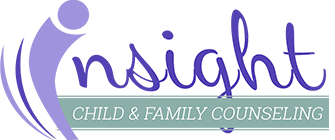If you suffer from debilitating anxiety, counseling can help you to understand and cope with your anxiety-related issues. Professional counseling, though an important part of your treatment, isn’t the only step you should take to live with and overcome your anxiety and its symptoms on a daily basis. There are some self-help techniques you can use to alleviate or eliminate the physical and psychological symptoms of anxiety:
1 – Take A Break
If you find yourself in a stressful situation – one that might trigger your anxiety – take yourself out of it, even if it’s just for a few minutes. Take a moment to step outside for a breath of fresh air, make yourself a cup of coffee or pick up a magazine. The symptoms of anxiety can escalate quickly to a point where you will be unable to deal with them; taking a break can stop the escalation and give you some time to relax.
2 – Practice Focused Breathing
One of the symptoms of severe anxiety is rapid breathing, or hyperventilation. Mastering focused breathing will give you another tool to use to keep your anxiety, and this symptom, in check. There are a number of guided exercises online that you can practice and there are even guided breathing apps, like Calm and Breathing Zone, that can teach you how to focus on your breathing to bring your anxiety level down fairly quickly.
3 – Employ Positive Visualization
If you’re about to enter into a situation that you’re sure will trigger your anxiety symptoms, take the time to imagine the event going as smoothly as possible. In addition to positive thinking, you can also clear your mind by visualizing safe, soothing places, like the beach, the countryside or any place else you associate with calm and serenity.
4 – Talk To Yourself
While you’re envisioning a positive outcome to a stressful situation, you must also eliminate your need for a perfect outcome. Tell yourself that you don’t have to be perfect and that you don’t have to have all of the answers for your life to be stress-free. If fear of failing causes you anxiety, remind yourself of all of your accomplishments and focus on what you’ve done right instead of what you’ve done wrong.
5 – Funnel Anxiety Into Creativity
Creativity can be a great way to release your anxiety and can be a healthy outlet for expressing feelings of fear, sadness and depression. Drawing, painting, sculpting, playing music, dancing, knitting, photography and more are excellent forms of creativity that will not only alleviate the symptoms of anxiety but can also release “happy” hormones like endorphins. If you don’t feel that you are a particularly creative person, try journaling, which everyone can do.
6 – Use Your Support Network
Professional anxiety counseling is one form of support that you can use to deal with your anxiety issues. You should also have other people you trust to confide in like parents, siblings, a spouse, friends, teachers and coworkers. A network of people you can turn to when your feelings of anxiety are worsening can make you feel that you aren’t isolated and you don’t have to deal with your problems alone.
For help with your anxiety and its symptoms, get professional anxiety counseling. Call Insight Child & Family Counseling at (972) 426-9500 or visit www.j9n.83e.myftpupload.com to schedule an appointment.


